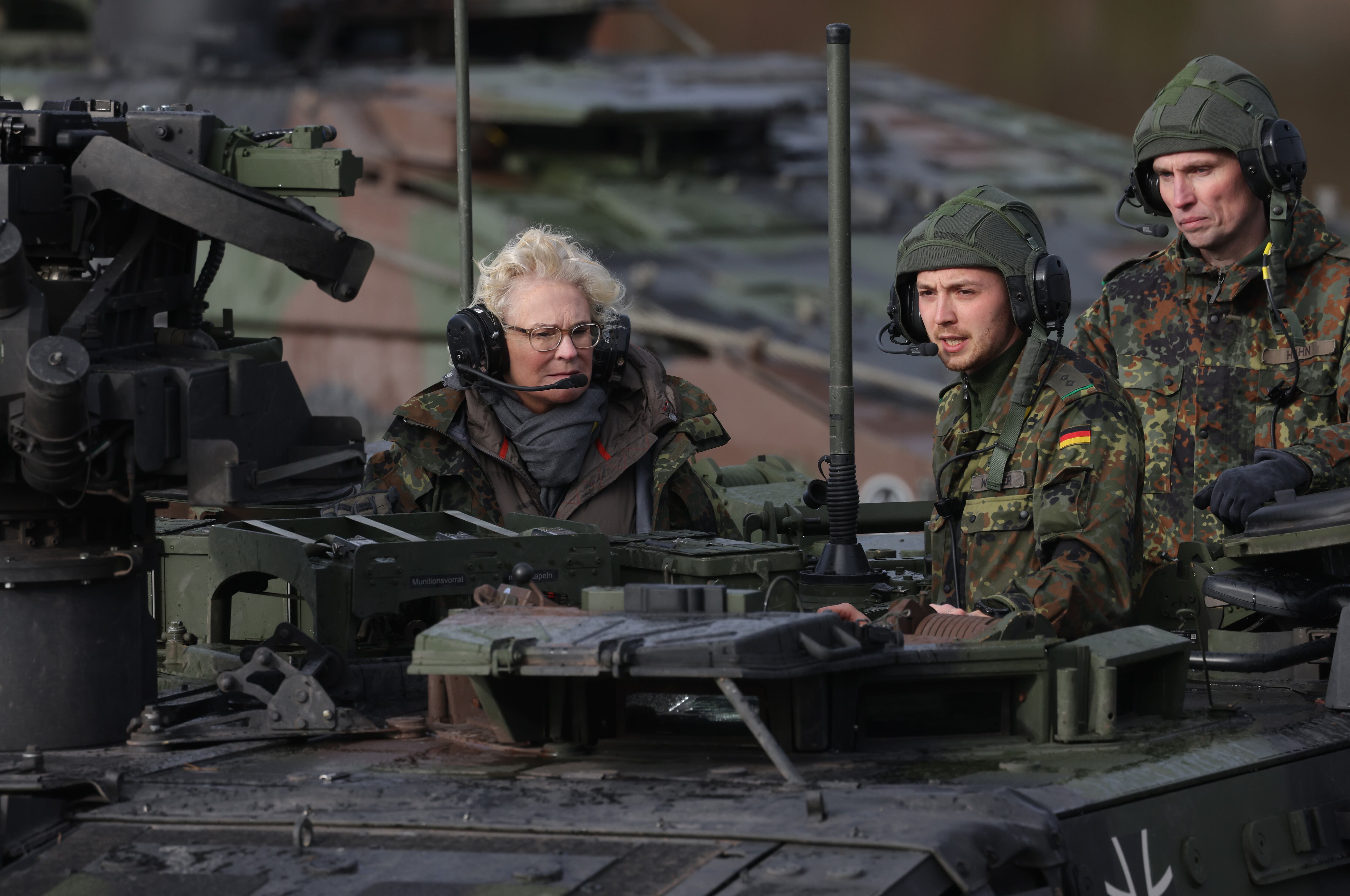As government officials and business leaders from around the world flock to Switzerland for the World Economic Forum’s annual meeting this week, Ukrainian soldiers continue to fight and die to protect their homes — and the rest of Europe — from Russian aggression. Yet, Switzerland is blocking vital assistance.
Despite repeated pleas, Switzerland won’t allow Germany to give Ukraine much-needed Swiss-made air defense ammunition that can help protect Ukrainians from the Russian onslaught. As they descend on Davos, U.S. and allied officials should take this opportunity to press Switzerland to change course.
Berlin has provided Kyiv with Gepard self-propelled anti-aircraft guns that have proved effective against the drones and cruise missiles Russia uses to bombard Ukraine’s electrical grid and other critical infrastructure. Gepards also proved useful in protecting Ukrainian ground troops during their counteroffensive in the Kharkiv oblast last September. Berlin intends to provide Kyiv with seven more Gepards, which could allow Ukraine to defend more critical infrastructure sites or deploy more of them to the front lines.
But these additional systems will be useless if Ukraine lacks sufficient ammunition to operate them. Kyiv is already running low, and could run out soon. The Germany company Rheinmetall is building a new facility that can produce the 35mm rounds fired by the Gepard, but it won’t begin production until June.
With its Gepards out of action, Ukrainians would be more vulnerable to Russian attacks and would be forced to expend much more expensive surface-to-air missiles, some of which are already in short supply.
The good news is that Switzerland can help. The bad news is that Bern refuses to do so, citing its commitment to military neutrality. Switzerland, where much of the existing ammunition for the Gepard was made, has repeatedly rejected German requests for permission to send Kyiv Swiss-made ammunition exported to Germany decades ago. Switzerland has also blocked other weapon transfers to Ukraine from Spain and Denmark.
RELATED

Despite Switzerland’s longstanding commitment to military neutrality, the country is actually a significant exporter of military hardware. Bern attempts to thread this needle by prohibiting arms exports to countries at war, but it has at times loosened these guidelines, mainly out of a desire to support the Swiss defense industry.
Notably, the Swiss government in 2016 decided to permit certain arms transfers to Saudi Arabia and other Middle Eastern countries fighting the Iran-backed Houthi militia in Yemen. Among other things, Bern allowed Riyadh to receive ammunition for previously delivered air defense systems, noting that the ammunition would be used for “legitimate military self-defense” and to “protect civil infrastructure.”
Does that sound familiar? That is exactly how Swiss air defense ammunition would be used in Ukraine, even against the same Iranian-made drones.
If it wanted to, Switzerland could make a similar exception for Ukraine. Some Swiss politicians argue that legislative changes to the country’s laws governing arms sales wouldn’t even be necessary, meaning Bern would perhaps simply need to issue an administrative decision.
This week in Davos, American and European leaders should make clear to their Swiss hosts that Bern’s inconsistent and lamentable position on the transfer of Gepard ammunition will cost lives in Ukraine and incur increasing consequences for Switzerland.
Those consequences should include decisions to stop purchasing Swiss arms, as some politicians in Germany — one of Switzerland’s top arms customers — have already suggested. In fact, reducing the reliance on Swiss weapons might make sense anyhow if there is a danger of Bern blocking deliveries of spare parts and ammunition to NATO countries in a future conflict.
American officials may also want to remind their Swiss counterparts that the U.S. is planning to deliver advanced weapon systems to Switzerland, including the Patriot air defense system. This is the same Patriot system Washington promised to deliver to Ukraine in the near future. These systems are also desperately needed to protect allies and American forces forward deployed in Europe, the Middle East and the Indo-Pacific region.
If Bern persists in its refusal to allow others to provide Kyiv with air defense ammunition, then Washington should think twice about prioritizing future arms sales to Switzerland, especially for systems needed elsewhere by countries willing to carry their fair share of the security burden.
Ukraine is defending itself from a war of aggression in which the Kremlin deliberately targets civilians. A Russian victory would overturn the post-World War II order that has fostered peace and security in Europe, including for the Swiss. Viewed in that light, Switzerland’s decision to block aid from reaching Ukraine is not an act of neutrality — it is something much worse.
Ryan Brobst is a research analyst at the Foundation for Defense of Democracies. John Hardie is deputy director of the think tank’s Russia Program. Bradley Bowman is senior director of FDD’s Center on Military and Political Power.








